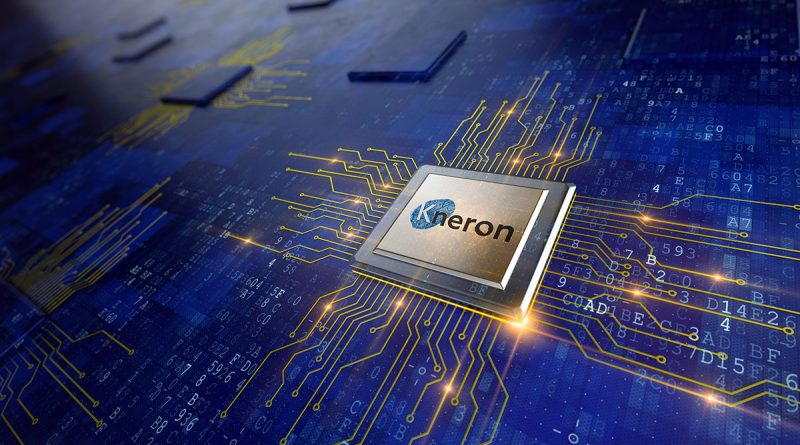Kneron, an AI chip company, secures $49 million in funding with support from Foxconn as it aims to compete with Nvidia.
Kneron, a semiconductor startup based in the United States, announced on Tuesday that it has secured fresh funding to accelerate the commercialization of its artificial intelligence chips, with the ambition to compete with Nvidia. The company revealed that it successfully raised an additional $49 million in this funding round, bringing the total to $97 million. Among the investors in this round were Taiwanese conglomerate Foxconn, renowned for assembling Apple’s iPhones, and Alltek, a communications technology company.
Kneron aims to capitalize on the considerable investor interest in artificial intelligence and the underlying chip technology, as highlighted by Nvidia’s remarkable 180% stock rally during the year and the recent initial public offering of semiconductor designer Arm in the United States.
While Nvidia specializes in graphics processing units (GPUs) designed for servers and data centers to handle the substantial computing power required for training artificial intelligence systems using large datasets, Kneron takes a different approach. Kneron designs chipsets intended for consumer electronics and automotive applications, enabling on-device AI processing at the “edge” rather than relying on cloud-based solutions. Advocates argue that this approach enhances both security and speed since AI applications don’t rely on cloud connectivity.
Kneron refers to its semiconductors as neural processing units (NPUs), with their latest product being the KL730, geared toward supporting autonomous driving.
Albert Liu, CEO of Kneron, pointed out that GPUs can be expensive to operate, potentially driving demand for their more cost-effective NPUs.
“With this funding tranche, Kneron is specifically focused on expanding its efforts to make autonomous driving a reality through AI,” stated Kneron in a press release.
Despite stiff competition from industry giants like Qualcomm and MediaTek, who are also developing on-device AI chips, as well as various AI semiconductor startups, Kneron has managed to secure support from prominent backers. Foxconn’s involvement is particularly noteworthy as it strives to diversify beyond electronic assembly, venturing into sectors such as electric vehicles and semiconductors.
As part of Foxconn’s investment, Kneron and Foxconn will collaborate to expedite the deployment of advanced AI solutions in automotive and other fields. They plan to develop an ultra-lightweight AI chip capable of running generative pre-trained (GPT) models from the cloud. GPT models underpin various AI applications, including ChatGPT.
However, Foxconn’s entry into the semiconductor industry has faced challenges, as demonstrated by its withdrawal from a joint venture with Vedanta in India, aimed at establishing a semiconductor and display production facility worth $19.5 billion. This move underscores the difficulties associated with entering the microchip market.
Regarding manufacturing, Kneron’s chips are currently produced by TSMC (Taiwan Semiconductor Manufacturing Company), the world’s largest contract chip manufacturer. Nevertheless, TSMC and the semiconductor industry as a whole have been embroiled in the geopolitical tensions between the United States and China. There are ongoing concerns that China’s actions, particularly regarding Taiwan, where TSMC is headquartered, could disrupt global semiconductor supply chains. To mitigate this risk, Liu mentioned that starting next year, Kneron will establish a more distributed production presence in the United States and Europe to reduce potential supply chain disruptions.

